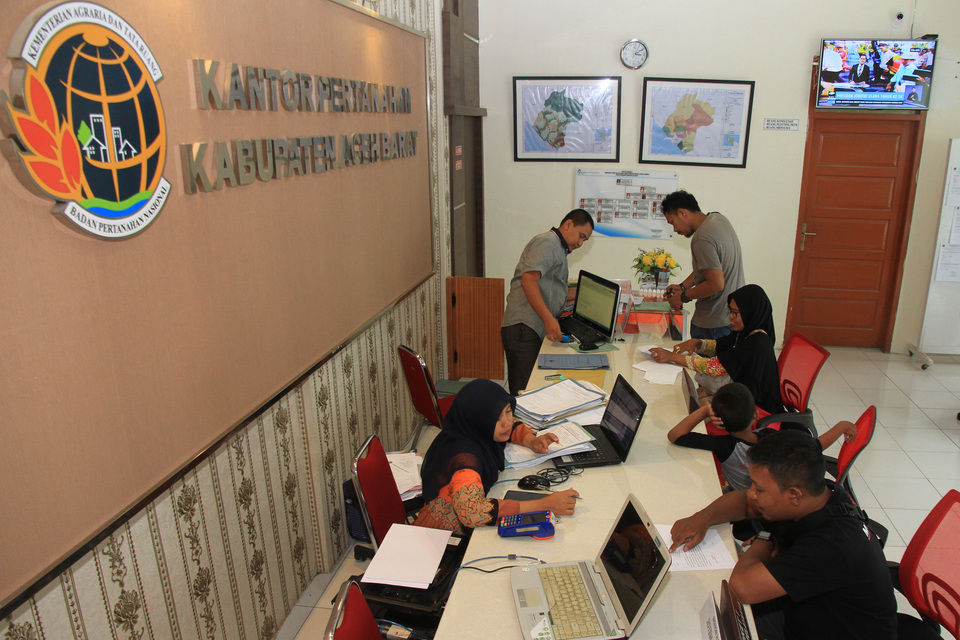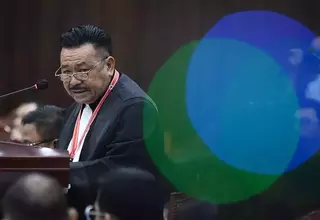Leveraging a Startup Mentality to Transform Public Services

What words do you associate with public services and government organizations in Indonesia? "Inefficient," "incompetent" and "unwieldy" are probably some that come to mind. Unfortunate, but not unchangeable.
In an era of disruptive technology, government leaders may benefit from imitating their counterparts in the corporate world. The speed and differentiation with which businesses deliver products and services will only prompt citizens to demand more from their public servants.
Government organizations should think more like startups to deliver better public services. In contrast to established corporates, startups dedicate themselves to exploring which business models will work best for the market. They experiment with ideas and validate them through rapid user feedback before scaling up. In other words, they live by innovating.
We have seen the phrase "disruptive innovation" being bandied around generously in the national discourse, but not so much in the context of the public sector.
To be sure, the government has taken some initial steps toward internalizing innovation. In 2014, the Ministry of Administrative and Bureaucratic Reform issued a decree that provides an ample framework for public service innovation. The ministry's public service department also allocated more than half of its 2015-2019 budget to developing innovative policy and information systems.
The ministry is leading the "One Agency, One Innovation" program that encourages ministries, agencies and regional governments to launch innovative projects through an annual competition. However, there is still vast room for improvement. Instead of making innovation a novelty to be celebrated once a year, government organizations should strategically weave it into their current machinery. Innovation should not merely be a buzzword, but rather a philosophy; a way to get things done in the public service.
First, innovation should be included as a critical lever in government agencies' strategic plans. Colombia set an excellent example by formalizing for the first time, a public innovation strategy in its 2018-2022 development plan. Among others, it is committed to strengthening innovation capabilities of over 8,000 public officials to promote a culture of innovation in government.
Second, an innovation ecosystem must be created to trigger the formation of ideas. The government should advance partnerships with external stakeholders, such as businesses, entrepreneurs, universities, think tanks and citizens, to generate ideas and build innovation agendas. It is essential that ideation focuses on tackling the core challenge or achieving the strategic goal of the organization in question, be it reducing congestion or targeting aid recipients.
The multi-stakeholder partnership will also be beneficial further down the road, especially when dealing with talent and budget constraints typically found in government bodies.
Third, the government should attempt to adopt the way startups operate, but not across the board. Government, for example, cannot "move fast and break things" as it has a responsibility to maintain stability and public trust. Still, it can learn from how startups drive innovation to deliver value to end-users.
Startups champion agility; they experiment with ideas through rapid prototyping and testing. They fail quickly and learn quickly, too, continuously iterating their product based on user feedback.
Government organizations, on the other hand, typically function around multiyear linear programs. They spend significant time and resources in planning and designing without much consideration of realities on the ground. As a result, many of their programs fall short in meeting citizens' expectations.
Therefore, the government should engage citizens directly and more frequently to identify their needs. Good ideas gathered during the ideation phase should be tested through proof of concept and subsequently, a prototype. Following iterations informed by citizen feedback, successful initiatives are to be scaled up and their impact carefully evaluated. Meanwhile, adequate risk management measures need to be put in place to contain the uncertainty involved in the innovation process.
In 2014, Papua New Guinea's finance department developed a text messaging system that allows citizens to report corruption anonymously. Prototype testing with users informed the design of the service, which eventually achieved a notable success. By the end of 2015, the initiative helped uncover more than 250 cases of alleged corruption and triggered the proceeding of a $2 million embezzlement case.
A simple innovation can go a long way when developed through disciplined experimentation and user-centered approach. Indonesia's Corruption Eradication Commission, or KPK, launched a similar whistleblower system in 2010, but it is unclear if it was based on any user tests or if the program's impact had been measured in any quantifiable metrics.
Finally, an innovation culture must be planted, nurtured and established in government offices. Public officials must break out of the risk-averse mentality and be open to thinking differently. They should be incentivized to innovate using both financial and non-financial rewards.
To support this, key leadership must take ownership of embedding an innovation mindset throughout their organizations. It is thus refreshing to see leaders like Pamekasan district head Badrut Tamam, who champions lean and digital bureaucracy. Within a few months of his leadership, this district in East Java launched a string of innovative public services, including an award-winning one-stop service for all its residents' public administration needs.
At the national level, the Ministry of Administrative and Bureaucratic Reform has the strategic position to usher in this new, transformative approach to public service. It should take the lead by promoting experimentation, empowering public servants and creating a nurturing ecosystem that can drive innovation and deliver valuable services to citizens.
Ultimately, innovation requires an open and flat organization, where people ideate and collaborate across departments and not in silos. Unfortunately, our current bureaucratic structures and processes do not support this, as hierarchies and rigid procedures are still a signature of our public offices. A major bureaucratic shake-up will thus be crucial if we were to achieve impactful innovation in the long term.
Naturally, the environment in which government bodies operate provides some limitations on what they can do. In contrast to startups that can operate in a grey area, the government is bound by laws and regulations and subject to certain checks and balances – and all for the right reasons.
However, there should be enough room for them to be more entrepreneurial, especially when the ultimate objective remains the same, that is delivering quality public services. Supportive regulations, for example, ones that reward innovative ideas in public offices, should thus be encouraged.
Indonesia is the proud home of some of the biggest unicorns in the region, many with a profound impact on citizens' economic choices and activities today. We should harness these creative resources to revitalize the public sector. It is time to birth a new paradigm of government – one that is not stuck in routines and isolated to change. One that is more efficient, competent and nimble.
Marshiella Pandji is a strategy and innovation junior advisor at 3H Partners London.
Tags: Keywords:POPULAR READS
Yellen Says Iran's Actions Could Cause Global 'Economic Spillovers'
Iran's missile attack on Israel early Sunday came in response to what it says was an Israeli strike on Iran's consulate in Syria.Prabowo Camp Cites ‘Procedural Error’ in Legal Challenge by Rival Candidates
The Constitutional Court's main task is to address alleged discrepancies in vote tallies, which neither of the plaintiffs challenged.Apple Wants to Increase Investments in Vietnam
Vietnam has become more important to Apple as the company seeks to diversify its supply chains away from China.China’s Top Diplomat Wang Yi to Visit Indonesia for Cooperation Talks
Chinese top diplomat Wang Yi will chair a policy coordination meeting aimed at strengthening Indonesia-China cooperation.President Jokowi Urges Global Restraint as Tensions Rise in the Middle East
President Joko "Jokowi" Widodo emphasized the importance of diplomatic efforts to prevent the escalation of conflict in the Middle EastPopular Tag
Most Popular






















